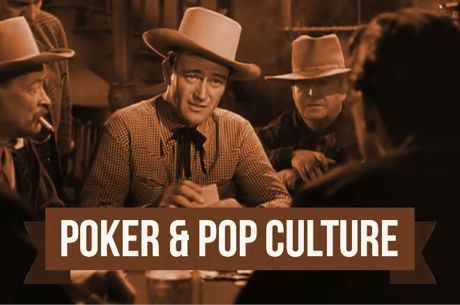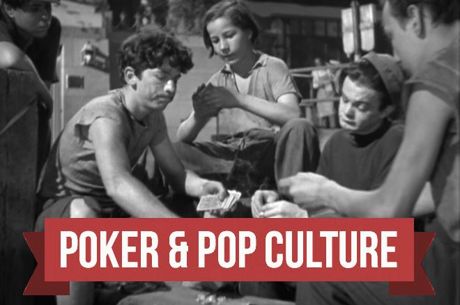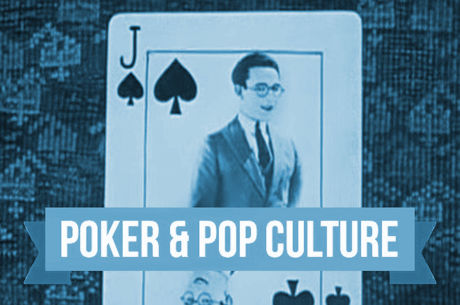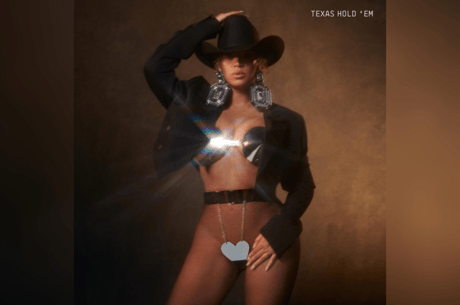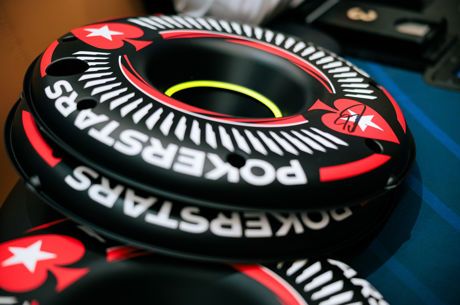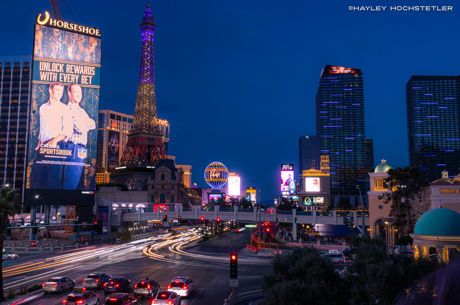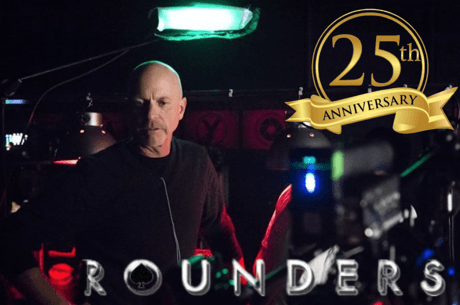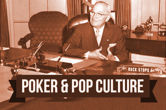Poker & Pop Culture: Tricky Dick Talks Poker in the White House
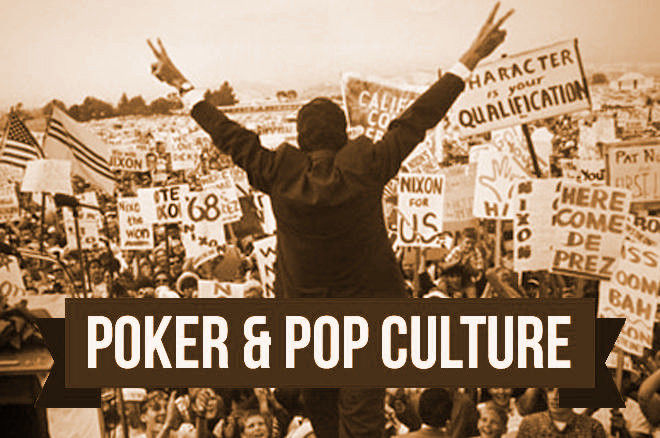
Long before he became President of the United States �� and then became the first and only president ever to resign from the office �� Richard Nixon learned how to play poker. By doing so he perhaps confirmed a position taken by one of his professors back at Whittier College, Albert Upton, who was once said to have suggested "a man who can't hold a hand at a first-class poker table is unfit to be President of the United States."
Here are a few lesser known anecdotes concerning the poker playing of "Tricky Dick."
Nixon, Recreational Player
There are those �� not many �� who believe Nixon first learned poker as a teenager while working summers manning the "Wheel of Fortune" at a rodeo in Arizona, though others insist his introduction to the game came later.
His Quaker upbringing would suggest Nixon steered clear of gambling on cards during his youth. But Nixon certainly had played poker by the time he had graduated from Whittier and was attending Duke Law School. In the spring of 1937, just a couple of months shy of having earned his law degree, Nixon submitted an application to the Federal Bureau of Investigation for the position of Special Agent. Later that summer when back in California, Nixon had an in-person interview with FBI Inspector Special Agent in Charge J.H. Hanson.
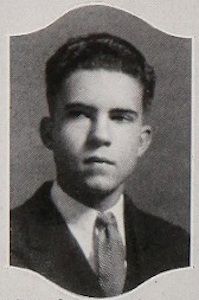
Hanson's notes from that interview acknowledge Nixon's lack of investigative experience though still recommend him as a qualified applicant who possessed "above average intelligence and mental alertness." Hanson also noted Nixon's neat appearance, his poor typing skills, and how he only took "an occasional social drink of liquor."
Finally, under the heading of "recreations and tastes" Hanson noted how Nixon enjoyed handball, swimming, going to the movies, dancing and reading, along with one other activity �� poker.
Nixon didn't get a job with FBI. Over the next few years he'd pass the bar, get married, work for a time in a Whittier law firm, then move with wife Pat to Washington, D.C. where he took a position with the Office of Price Administration. In August 1942 at age 29 he'd enlist in the Navy, and the following year found himself a passenger control office for the South Pacific Combat Air Transport Command.
Eventually he'd be promoted to lieutenant, and in January 1944 he and his detachment were reassigned to the U.S.S. Bougainville, a stop-off for pilots to and from battle missions. He'd also serve on nearby Nissan Island �� a.k.a. Green Island �� until July 1944 when he was called back to the U.S. where he'd remain for the duration of the war.
It was during his time in the Navy, most specifically when stationed in the south Pacific, that most Nixon biographers say he first played poker. In fact Nixon himself would claim as much whenever asked about his poker playing. That's what he told Earl Mazo, anyway, who penned an early biography that appeared not long before Nixon ran for president for the first time in 1960.
"I never knew what poker was until I joined the Navy," Nixon told Mazo, who like many others who have written about Nixon over the years didn't question the claim.
Many years later during the hearings conducted by the Senate Watergate Committee, Sen. Howard Baker would be the one to ask what became for many the single most pertinent �� and memorable �� question regarding the break-ins at the Democrat National Committee headquarters and subsequent efforts by Nixon and members the White House staff to hide their involvement.
We might paraphrase Baker's famous question and apply it to Nixon's knowledge of poker:
What did he know, and when did he know it?
Poker in the Pacific
It's safe to say that even if Nixon played poker before joining the Navy, he never played it as seriously as he did during those months he was stationed in the South Pacific. We'll grant Nixon some plausible deniability, then, when he says he "never knew what poker was" before then, insofar as he could be referring to a lack of knowledge about strategy and how to win.
Stories about Nixon's apparent prowess at poker are easy to find, as are tales of his winning thousands of dollars off of his fellow officers. In his own memoirs, Nixon would modestly claim "my poker playing during this time has been somewhat exaggerated in terms of both my skill and winnings." Even so, he wouldn't need that much prompting later in life to remind others of how he'd won as much as $10,000 during those games of five-card stud and five-card draw.
Applying the same work ethic he exhibited in college and law school, Nixon studied poker strategy with great earnest, obtaining some instruction from his bunkmate Jimmy Stewart (not the actor) with whom he helped lead the SCAT detachment.
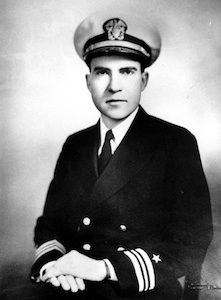
"One day I noticed Nick lost in his thoughts," Stewart would later tell another Nixon biographer. "He was seemingly concentrating on some problem. Finally he asked: 'Is there any sure way to win at poker?' I explained that I didn't know of a sure way to win, but that I had a theory for playing draw poker."
Stewart's theory consisted of playing a tight game �� "that one must never stay in unless he knows he has everyone beaten at the time of the draw." Nixon understood, and the pair "played two-handed poker without money for four or five days, until he had learned the various plays."
"Soon his playing became tops," Stewart concludes, and other fellow officers would later echo the sentiment that Nixon was the best player of the bunch. It's impossible to pinpoint exactly how much Nixon won at poker as an officer in the Pacific, though letters home to Pat reveal he was sending money home with some regularity, and most biographers maintain he would use at least some of those winnings to help fund his first Congressional campaign in 1946.
In one of his later books, In the Arena, Nixon confirmed that prior to that first campaign he and Pat's "net worth was $10,000, a combination of what I had saved from my Navy pay, my poker winnings in the South Pacific, and Pat's job" while he was overseas.
In a later 1983 interview Nixon would outline his poker strategy in some detail, largely echoing the "close to the vest" tight strategy recommended by Stewart, although Nixon would also speak knowledgeably about the art of bluffing.
"I didn't bluff very often," Nixon would explain. "I just bluffed enough so that, when I really had the cards, people stayed in.... In order to win at poker, you must establish your credibility... that when you are betting you've got the cards."
Such statements read ironically in retrospect, of course, given how much Nixon would later bluff during Watergate, including well after the point when his credibility had been diminished so severely. So does his statement about how best to determine if others might be bluffing.
"I learned that the people who have the cards are usually the ones who talk the least and the softest," explained Nixon. "Those who are bluffing tend to talk loudly and give themselves away."
"You're One of the Worst Poker Players I've Ever Seen"
Of course, it was Nixon himself who would ultimately talk loudly and give himself away, his words being recorded on the secret White House taping system he had installed during his first term in office in February 1971, then had dismantled once the existence of the system was revealed in July 1973 during the Watergate hearings.
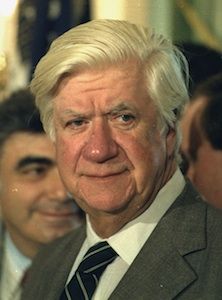
Nixon continued to play poker as a member of Congress, as a senator, and occasionally when serving as Vice President under Dwight D. Eisenhower (another formidable poker player, by most accounts), though he never won as consistently as he did in the Navy.
One of his opponents during those games was a young Congressman named Tip O'Neill (later to become Speaker of the House). O'Neill would later insist Nixon wasn't nearly as good a player as his reputation suggested.
In his autobiography Man of the House, O'Neill described how Nixon "talked too much and didn't follow the cards."
"One night I said to him, 'You know, I'm sick and tired of reading what a good poker player you are. As a matter of fact, you're one of the worst poker players I've ever seen.'"
"'I was pretty good in the Navy,' he said. 'In the Navy?' I replied. "'Those were kids you were playing with. What did they know about poker?'"
Talking Poker on the White House Tapes
Nixon would play less poker during the 1960s, and even more sparingly after he took office in 1969. However he'd still talk about poker from time to time, as evidenced by those White House recordings.
Thanks to nixontapes.org, thousands of hours of these recordings are now available to the public. While recordings related to Watergate are unsurprisingly the most consulted, much else is discussed on the tapes by Nixon and his staff for those who are curious. For example, there are many examples of Nixon bringing up poker on the tapes, and below I've compiled just a few short clips.
The first comes during a visit to the White House by two of Franklin Delano Roosevelt's sons, James and John. Knowing that FDR was an avid poker player, Nixon can't help but ask the pair about their father's playing, alluding back to a game FDR was said to have hosted in the very San Clemente house Nixon himself then owned.
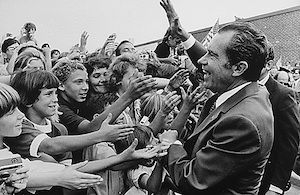
In the clip Nixon repeats an assertion he makes elsewhere about his dislike of "wild card" games �� one of the reasons (he'd say) he didn't fare so well in the games with Tip O'Neill and other lawmakers.
The second clip comes after a speech Nixon delivered to Congress in September 1971 regarding the United States' economic responsibility to the rest of the world. Nixon's argument there was to suggest the U.S. should lessen its obligations to other nations and focus more on giving "attention to America's own interests here at home."
In the speech Nixon included an analogy describing how "world trade was like a poker game," suggesting that in the past America had "generously passed out the chips" so that other nations could "play," but now should stop doing so. "Now others can play on an equal basis," Nixon argued, "and we must play the game as we expect and want them to do."
In the clip Nixon and staff members discuss the effectiveness of the poker analogy �� how poker, being easier to understand than international diplomacy or world economics, was a useful way to connect with a broader audience.
Finally the third clip is from Nixon's many discussions with his National Security Advisor Henry Kissinger about Vietnam. Sending Kissinger into negotiations, Nixon tells him to share the story of the president's poker-playing background as further support of the notion that "the President isn't bluffing."
From the forthcoming "Poker & Pop Culture: Telling the Story of America's Favorite Card Game." Martin Harris teaches a course in "Poker in American Film and Culture" in the American Studies program at UNC-Charlotte.

